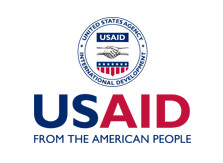|

In Nomadic settlements where births are not documented, other measures are employed to ascertain the ages of children during immunization exercises.
|
Success Story
Data Provokes Traditional Ruler, Boosts Polio Immunizations Remarkably
Zamfara, Northern Nigeria, January 2008 The people of Birin-Magaji, a rural Local Government Area in Zamfara State in Northern Nigeria, are mainly farmers, traders, and herders. They are required to interact and travel in order to meet the demands of daily living, but in the end they do more than exchange goods and services - they exchange transmissible diseases such as polio which leaves children vulnerable, especially those who have not received the required doses of vaccine.
Despite several rounds of nationwide immunizations, Nigeria remains a centre of transmission for the wild polio virus. According to the World Health Organization, over 1100 cases of wild polio were diagnosed in Nigeria in 2006. Most of these were from the North. Among several issues compounding the problem is the challenge of collecting and verifying data to plan interventions and recognize and build on achievements.
The COMPASS Project contributes to the polio eradication campaign by reviewing and analyzing data from each immunization round and supporting communities, providers, and traditional and government authorities in identifying emerging priorities and taking action.
Following an analysis of the polio situation in Birin-Magaji, COMPASS disseminated the findings to the Emir in the area. According to the data, the Local Government Area ranked as one of the most high risk for polio transmission with six new wild polio virus cases in 2006 and no significant improvement in 2007. The monthly surveillance data revealed that the area had two acute flaccid paralysis cases and the least coverage for routine immunization. Based on the data, the enlightened Emir swung into action by holding meetings with all district heads and charged them to monitor the immunization activities of primary health centres; he also held a similar meeting with all health facility heads, strongly urging them to be committed to their work.
|
“Data also revealed that for the first time ever, following the June 2007 immunization exercise Birnin Magaji did not experience any new cases of acute flaccid paralysis." |
In addition, the Emir facilitated the supply of cold chain materials, critical for the storage and transport of the polio vaccine, and introduced Emirate birth certificates to compliment efforts of Traditional Birth Attendants in tracking and referring newborns for vaccination. To begin the June 2007 immunization activities, a Flag Off ceremony was organized at the Emir's palace and letters were dispatched to ward heads and religious leaders, urging them to hold sensitization meetings and repeat mosque announcements on the benefits of immunization.
As a result of the Emir's involvement, the June 2007 Immunization Plus Days recorded a remarkable 93% immunization coverage. According to COMPASS Regional Director for Polio Immunization Activities, Dr. Lola Mabogunje, “The exercise was described by personnel as the most successful and hitch-free with almost all non-compliance cases resolved instantly by the community leaders”. Data also revealed that for the first time ever, following the June 2007 immunization exercise Birnin Magaji did not experience any new cases of acute flaccid paralysis.
Launched in 2005, the COMPASS Polio Program strengthens polio immunization activities by mobilizing communities, improving vaccination coverage and management, and overseeing the monitoring and evaluation of all immunization efforts, in collaboration with the Nigerian National Polio Eradication Initiative. COMPASS' polio eradication work takes place in the Federal Capital Territory and ten other states: Bauchi, Jigawa, Kaduna, Kano, Katsina, Kebbi, Lagos, Nasarawa, Sokoto and Zamfara.
|
